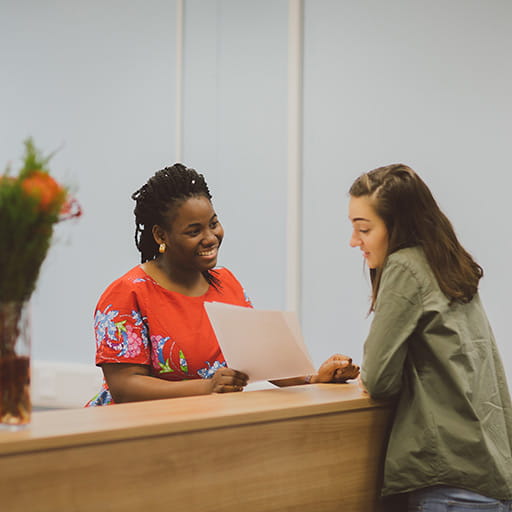Managing anxiety in exams
Keeping calm
Once in the exam, if you feel panic is rising and your mind going blank, take a minute to use a breathing technique and give yourself time to calm down and regain focus. Panicking will stop you reading carefully so it is important to keep yourself focused and positive. Read the whole paper once, then read it again and mark the questions you think you can answer. Then read those questions carefully – make sure you understand what is required – and select the ones you are going to answer.
Answering the question
The biggest mistake people make in exams is not to read the question carefully; so they don’t answer it in full. The second biggest is making sweeping statements without backing them up with evidence. Plan out your answer for each question as you go. If you find that thoughts or ideas about other questions come into your head, jot them down on a separate piece of paper – don’t spend time thinking about them now. If your concentration wanders or you begin to feel panic, try one of the focusing or other techniques below.
Self help techniques to help focus
Thought-stopping
When we are anxious we can begin to have negative thoughts ('I can’t answer anything', 'I’m going to fail', 'I’m going to panic'). If this is happening, halt the spiralling thoughts by mentally shouting 'STOP' or picture a road 'STOP' sign or traffic lights on red. Once you have literally stopped the thoughts, you can continue planning, or practise a relaxation technique.
Use a mantra
Derived from meditation, a mantra is a word or phrase which you repeat to yourself. Saying something like 'calm' or 'relax' under your breath or in your head, over and over again, can help reduce anxiety.
Focusing
Looking out of the window; noticing the number of people with red hair; counting the number of desks in each row…all help to distract your attention from anxious thought and keep your mind busy. Mental 'games' such as making words out of another word or title, using alphabetical lists etc are all good forms of distraction.
Bridging objects
It can help to carry or wear something with positive associations with another person or place. Touching this 'bridging object' can be comforting in its own right, then allow yourself a few minutes to think about the person or situation which makes you feel good. This can have a really calming effect.
Self-talk
In exam anxiety or panic we often give ourselves negative messages, 'I can’t do this', 'I’m useless'. Try to consciously replace these negative thoughts with positive ones, 'this is just anxiety, it can't hurt me', 'relax, concentrate it's going to be OK', 'I’m getting there, nearly over.'
Whichever of the distraction techniques has worked for you, finish by going through the refocusing exercise (it only takes 30 seconds or so but may have a profound effect on your ability to believe in yourself and the task in hand). Different techniques work for different people, so it's worth experimenting to find the ones that are right for you. Developing techniques for managing panic can take time so it pays to keep practising.
After the exam
After the exam is over, it's tempting to over analyse all the answers you gave and if they were good enough. This will only stress you further. Try to forget about the last exam, and focus on the next one, instead.

For further help and advice please contact the Student Services Hub.